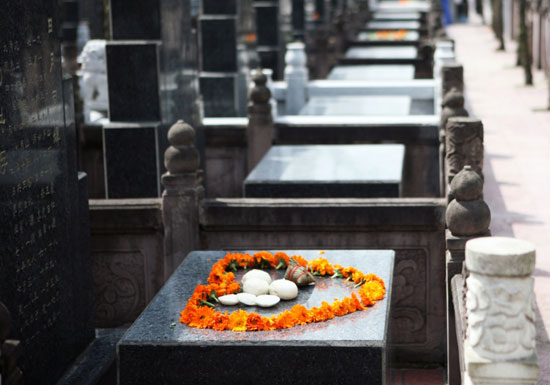Paying respect for ancestors
Updated: 2012-04-11 10:52
By Li Yu and Lai Li (China Daily Chengdu Bureau)
|
|||||||||||
 |
|
People lay flowers and offerings on tombs of ancestors at Chengdu Mupanshan Cemetery during the Qingming Festival. [Photo/chinadaily.com.cn] |
The Qingming Festival or Tomb Sweeping Day that fell on April 4 this year, is a traditional holiday dating back to the ancient China era.
Chengdu residents had begun mourning activities a few weeks before the festival. They laid flowers, burned incense and joss paper.
"I come to pay my respect for my deceased elders," said Lv Yingzhong, a 68-year-old man, who was burning joss paper three days before the Qingming Festival.
"We used to kneel and bow to our ancestors, now we only burn incense and paper-made offerings," Lv told the China Daily.
Mourning activities vary in the city. Some people burn offerings such as paper-made mobile phones, laptops and garments while others mourn their departed ones through E-memorial systems.
"I think it is important that people remember and honor their ancestors, no matter what methods they prefer," said Wang, a Chengdu citizen, "My relatives are always busy working. The festival is a good opportunity to bring families together."
Like the Han people, ethnic groups such as the Manchu and Mongolians also participate in commemorative activities. Their worship rituals were influenced by the Hans, who lived in Chengdu for a long time. "The Manchu and Mongolianss lay flowers, incense or light firecrackers," said Xu Shunbin, the Manchu and Mongolian graveyard watcher, "Some people only bring flowers to advocate green ways of commemorating."
Located near the Mupanshan Cemetery in north Chengdu, the graveyard is the only state-level one exclusive for Manchu and Mongolians, which cover an area of about 3,333 square meters.